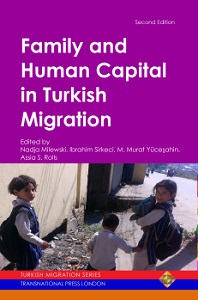‘Making the balance: to stay or not to stay?’ Highly educated Turkish migrants, trends of migration and migration intentions.
‘Making the balance: to stay or not to stay?’ Highly educated Turkish migrants, trends of migration and migration intentions.
Author(s): Işık Kulu-Glasgow
Subject(s): Politics, Geography, Regional studies, Higher Education , Policy, planning, forecast and speculation, Migration Studies
Published by: Transnational Press London
Keywords: Netherlands; Turkish migration; knowledge workers; education; Dutch policy instruments;
Summary/Abstract: For more than a decade the countries of the European Union (EU) have been chasing their ambition to make Europe a centre of excellence’. In 2000 they formulated their common goal of making the EU the most competitive and dynamic knowledge economy of the world in the Strategy of Lisbon. The European Recovery Plan of the European Commission, which aimed to combat the most recent economic crisis, emphasized the importance of the innovative knowledge economy and scientific research (European Parliament, 2010). To fulfil the targets of the Europe 2020 Strategy (e.g. increasing productivity, competitiveness, economic growth, solving the problem of labour shortage in sectors of innovation), stimulating intra EUlabour mobility or needs-based migratory flows were named as relevant policy tools. Similarly, encouraging highly skilled immigration from non-EU countries was considered to be essential. In the EU, the share of the highly educated among migrants born outside the EU was almost negligible - only 2% - compared with 4.5% in the USA, 8% in Australia and almost 10% in Canada. As a consequence, the EU-countries got engaged in a global ‘battle for brains’, not only as a union, but at the same time among themselves in order to attract the ‘best and the brightest’ and to reach sustainable economic growth.
Book: Family and Human Capital in Turkish Migration
- Page Range: 69-89
- Page Count: 21
- Publication Year: 2015
- Language: English
- Content File-PDF

